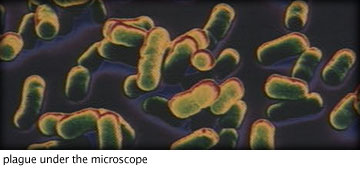

FRONTLINE's "Plague War" investigates the ever-increasing threat of biological weapons in today's world, focusing on the rise and fall of the Soviet Union's enormous covert bio-weapons program which went undetected for almost two decades.
Dr. Kanatjan Alibekov, former first deputy chief for the Soviet biological weapons program Biopreparat, reveals that tens of thousands of people worked in over forty facilities scattered throughout the Soviet Union, stockpiling smallpox, plague and anthrax. All these deadly agents, says Alibekov, were readily convertible to biological weapons using special ICBM warheads targeted at major American cities.
How the U.S. finally discovered the Soviets' secret program years after the USSR had signed a treaty banning offensive bio-weapons - and why it took almost two decades - is recounted by American and British scientists, as well as former Secretary of State James Baker who describes the behind-the-scenes diplomatic attempts to shut down the Soviet program.
Turning to the bio-warfare threat in the world today, "Plague War" examines why bacteria and viruses are arguably the most effective weapons of mass destruction. Experts summarize how bacterium and viral agents like anthrax, plague, Ebola, Marburg and smallpox could devastate a population if properly released into the environment. At least ten nations reportedly have the ability to create bio-weapons. James Woolsey, former CIA Director, notes that growing biological agents takes little more expertise than brewing beer and is within the reach of countries or terrorists that have the money and access to scientific expertise.
Although Russia says it has ended all offensive bio-weapons work, this FRONTLINE report ends with experts like Dr. Matthew Meselson expressing continuing concerns about what might be going on at Russian military labs which are off-limits to inspection. And scientists like Dr. Frank Malinoski worry about what has become of the many scientists who worked on the Soviets' secret program.
In a race against time U.S. officials and scientists are mounting programs to find a defense against possible future use of biological agents by terrorists or rogue nations. While Defense Secretary William Cohen outlines measures in the new US initiative, Michael Osterholm, an out-spoken advocate of developing an emergency response for bio-weapon attacks, says there are serious deficiencies in the US program at the local and community level.
 |